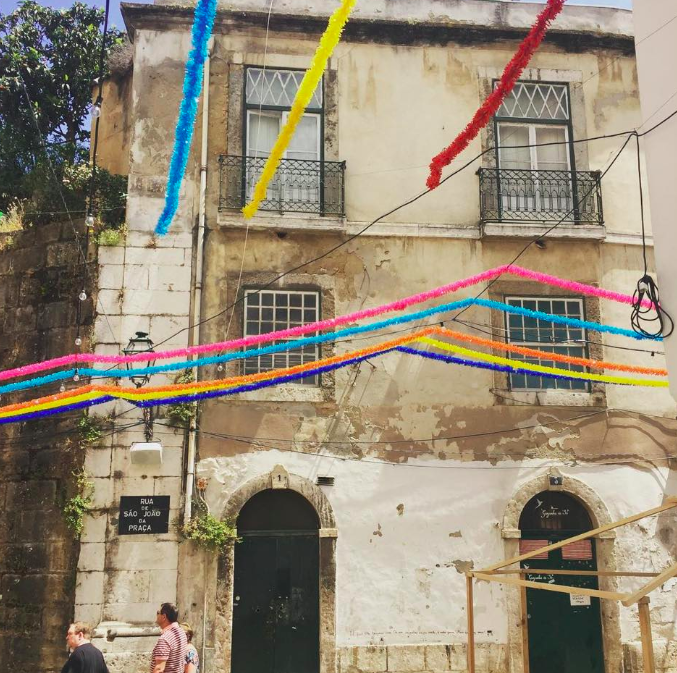Three days ago I was fortunate enough to travel alone from Greece to Portugal to participate in a conference. This was one of the rare trips when I flew unaccompanied – besides the times when I move back and fourth from the US for work. Since I had a day to explore the city of Lisbon on my own, with no one to share stories with, no one to distract and no one to distract me, I started noticing the patterns between the people around me.

While different in colour or expression, people where smiling, people where walking, people where worried about which souvenirs to purchase to bring back home. This is feeling that I grasped in people populating the streets as well: to bubblewrap their new possessions, to bring them back unharmed. I also noticed women trying on dresses in stores, eagerly searching for one that would promote their essence in a seemingly effortless way.
And then I walked down some paved hills and a woman emerged in front of me, walking with a stick so that she wouldn’t slip down the difficult streets. Her curbed back reminded me of my grandmother who refused however to hold on to a walking aid. I saw girls of my age with my body type and others with different ones. I encountered different humans doing the different things that I like: exploring, buying fados cd’s, biking up hill, surfing down Alfama. I met younger and older people, everyone going about their day without realising the irony of it all.

I have many times said that my favourite feeling in the world is walking for hours on end during a trip, with my only purpose being to explore. Traveling alone however, gave me a different perspective on the matter. I was done with the conference and I had 13 hours until my midnight flight to return. It was 11AM and I had checked out of my hotel, I had no wifi on my phone and I had a restlessness that did not allow me to just sit in a cafe and kill some hours. I had also been to Lisbon before and I knew that giving up on a Portuguese walk was a hubris I would later regret.

I am a person who always has something to do or always finds something to do so expecting of myself to just walk was overwhelmingly resting. I decided that I would not go to any museums or visit the San Jorge castle, nor would I travel to the Oceanarium to view the dolphins. I had done all of these things before and I also remembered that no one was there to make me redo them. As scary as it was to say, I was free to experience Lisbon the way I do the most: by walking through it.
During my flight to the city, I was anxious about a commitment I had for my university. I was frustrated at myself for allowing something so minor to infect my trip with its deleterious effect but I couldn’t stop thinking about it. But when the night was gone and so did the next day, my experience of walking uncommitted to people or responsibilities through others who were chasing after their days, my fret beautifully resolved itself.

I realised that while we may spend our days worrying about our work, our friends, our lovers, our families, our bodies, our clothes, life bypasses it all. Finding myself in between so, so many different people who were however so much alike, I was reminded of how many of them existed long before my school assignment and how many will replace me when I’m gone. Life moves forward silently and relentlessly, even: it reminds us of how small we really are. These streets have been paved by the steps of people who never knew me and then my footprints will be overwritten by these of the next generation and then the next one.
Like Lisbon, life existed before and will exist after us as well. And feeling as if we have the weight of the world on our shoulders is a highly ungenerous way to think: it is ungenerous to all other people. Since we are all that we have, it is logical to take ourselves too seriously. But when anxiety becomes overwhelming, thinking of life as a premise which we enter as visitors can help. Like traveling to Lisbon, we can treat what we see with respect, we can make the best of it and we can do what we can to help the ones that will come after to find it more beautiful than we did. Because life can, in fact, be easy.



